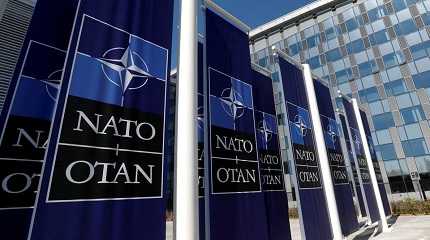
STOCKHOLM, June 9 (NNN-MERCOPRESS) — Sweden’s Supreme Court on Wednesday approved the extradition of a supporter of the Kurdish Workers Party, (PKK) to Turkiye. The decision clears the way for the government in Stockholm to meet Turkiye’s demand that it hand over several individuals it considers “terrorists” as a prerequisite for approval of Sweden’s request to become a member of NATO military alliance.
Sweden and neighboring Finland requested membership in May 2022 following Russia’s invasion of Ukraine, yet Turkiye —alongside Hungary — has refused to approve Sweden’s bid. Membership requires unanimous member approval.
Though the central government in Stockholm must make the final decision, the Supreme Court ruling is necessitated by Swedish law before the government can grant such requests by another state.
The decision comes after the May re-election of Turkish president Recep Tayyip Erdogan and days before Sweden and Turkiye are set to resume NATO membership talks.
The 35-year-old individual in question reportedly moved to Sweden in 2018 after receiving early parole while serving a four year and seven month prison sentence. He was arrested again last August at the request of Turkish prosecutors who now want him to serve the remainder of the 2014 sentence.
The man admitted that he had committed the drug crimes he was convicted for and said he received early parole for good behavior. He has been in pre-trial detention since his 2022 re-arrest.
Addressing the court, the man said he suspected the real reason Ankara was demanding his extradition was his Kurdish ethnicity and the fact that he worked to further the interests of Kurds.
He is a member of the People’s Democratic Party, (HDP), a pro-Kurdish political party, and is a supporter of both the PKK and YPG militia groups. Both the PKK and YPG, which is active in Syria, are outlawed in Turkiye and President Erdogan accuses the HDP of being directly linked to the PKK — an accusation the HDP refutes.
In announcing its decision, the court said that an extradition conflicted neither with Swedish law nor the European Convention on Human Rights.
During its hearing on the matter the court asked Turkish prosecutors if the man would be investigated for or charged with the crimes of “propagating for a terrorist organization” or “insulting the president” —vague laws that allow Turkish authorities to jail individuals they view as political opponents. Turkish prosecutors assured the court that the man was not under any such suspicion.
The government in Ankara has jailed thousands of political opponents whom it says were involved in a failed 2016 coup attempt as well as others tied to the Kurdish independence movement.
Turkish President Erdogan has accused Sweden of harboring “terrorists” and said he would vote against Swedish NATO membership if Stockholm failed to extradite them. Kurds living in Sweden say they face political persecution in Turkey.
Both Sweden and neighboring Finland reversed long-standing military non-alignment policy last year in seeking NATO membership. Finland became NATO’s thirty first member on April 4 of this year.




